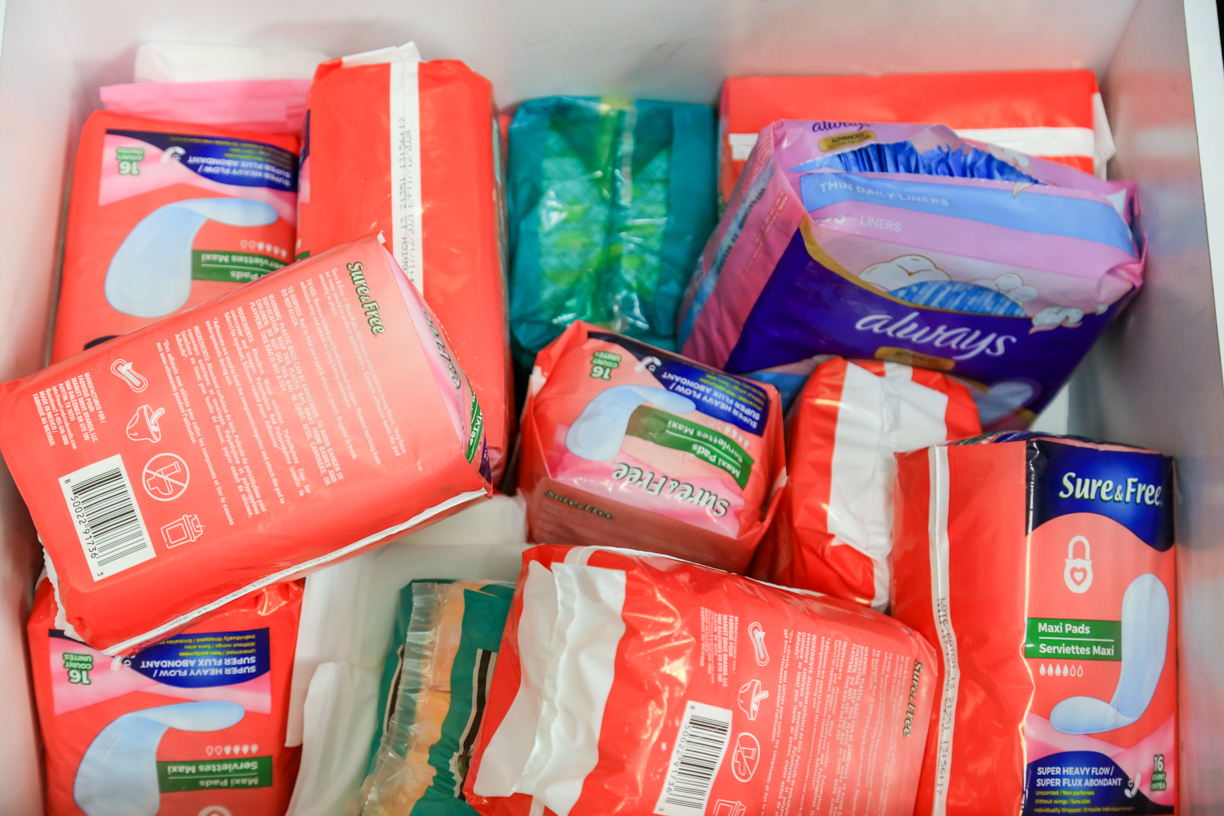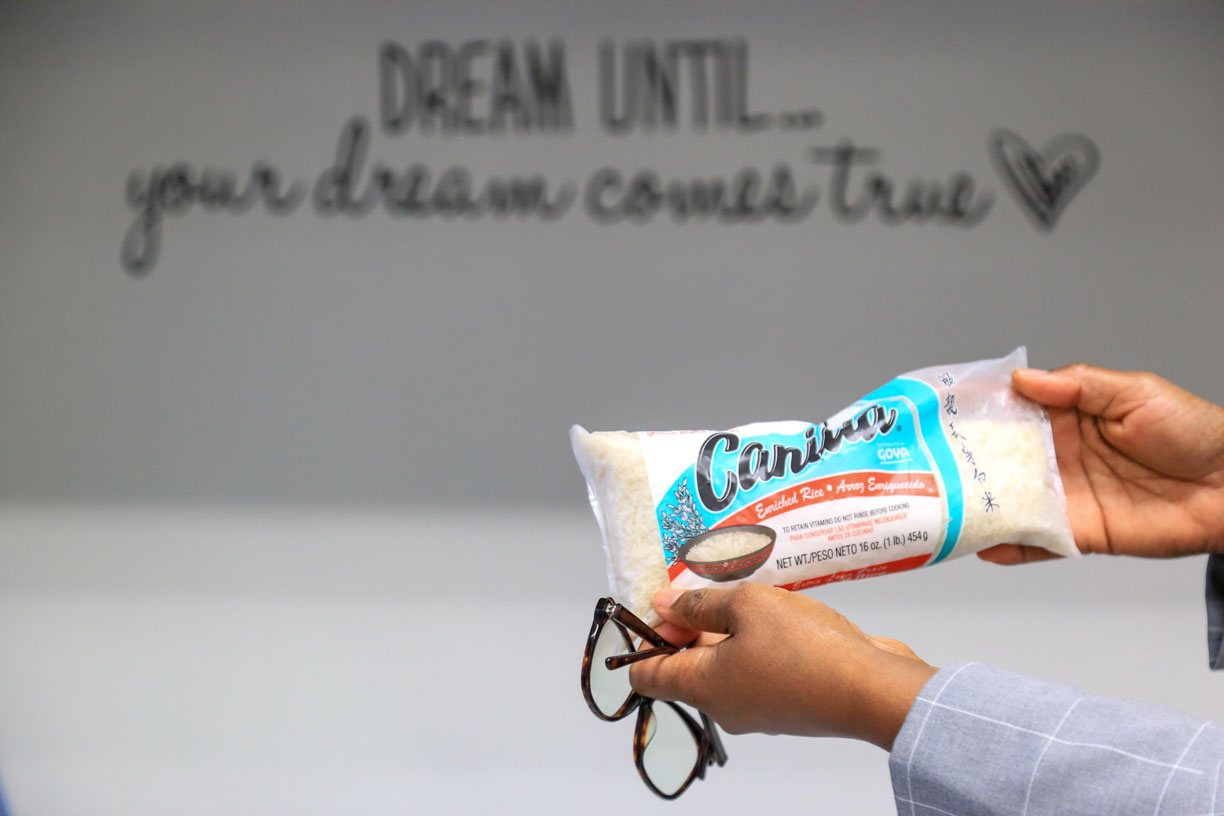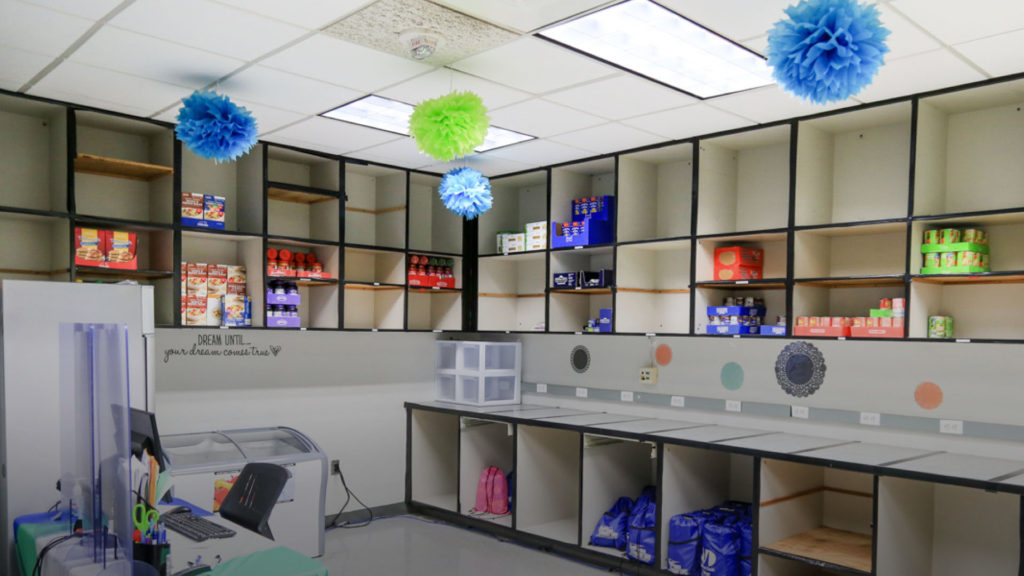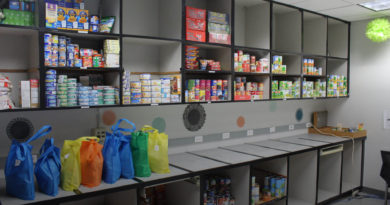Miami Dade College Food Pantries Face Donation Shortage
In 2013, North Campus humanities professor Sarah Garman got tired of hearing stories of students who had to decide between buying textbooks or groceries.
So she galvanized a network of support to help. She got buy-in from the president’s office, Student Life, faculty and Single Stop.
An on-campus closet was repurposed to store donations and they started distributing bags of food once a week to students in the 4000 building.
Since then, the Food Pantry has blossomed into an asset for students. It now has locations at all eight Miami Dade College campuses and has assisted thousands of students with a variety

of non-perishable food items and hygiene products.
More than 1,700 visits were made college-wide this past fall and spring, according to Single Stop Director Janet Mapp.
But with fewer people on campus because of the pandemic, there have been fewer donations. And signature events that once benefited the center like the North Campus High Tea Party that previously raised $4,500 have not happened.
Although the pantries have not turned anyone away, they have fewer products on their shelves.
“The level of donations has not gone back to what it was before the pandemic,” said Elsa Tanis, the outreach coordinator for Single Stop at North Campus.
Tanis said the shortage is being felt. Before the pandemic students were able to select any items they needed for the week from the North Campus Food Pantry. Now, guests pick up prepackaged bags with items that include canned beans and vegetables, rice, soap and red pasta sauce at the Single Stop office.
Keira Smith, the Single Stop coordinator at Kendall Campus, said their food pantry is also facing shortages this summer. Among the items they need are canned foods, protein packets, fruit cups, macaroni and cheese, ramen noodles and dried fruits.
“Anything that anyone can afford to bring, bring [it],” Smith said. “There is a shortage of everything.”
The types of products students can receive at the food pantries include pasta, rice, canned chicken and meats, cereal, peanut butter, beans (bagged or canned), chips and toiletries.
Students who want to receive items fill out an in-take form and bring their class schedule and student ID when receiving the products.
Hilda Avilés, the Single Stop outreach coordinator who oversees the Hialeah and West Campus sites, said her locations average 65 visitors per semester combined. Hialeah has a shortage of personal hygiene products.
“We have a lot of students that are struggling to make ends meet,” Avilés said. “[The Food Pantry] is another way for [them] to still be able to have a meal.”
To locate the Food Pantry at your campus to receive help or to make a donation, visit their website at: www.mdc.edu/pantry/.
Click here to subscribe to our bi-weekly newsletter, The Hammerhead. For news tips, contact us at mdc.thereporter@gmail.com.





